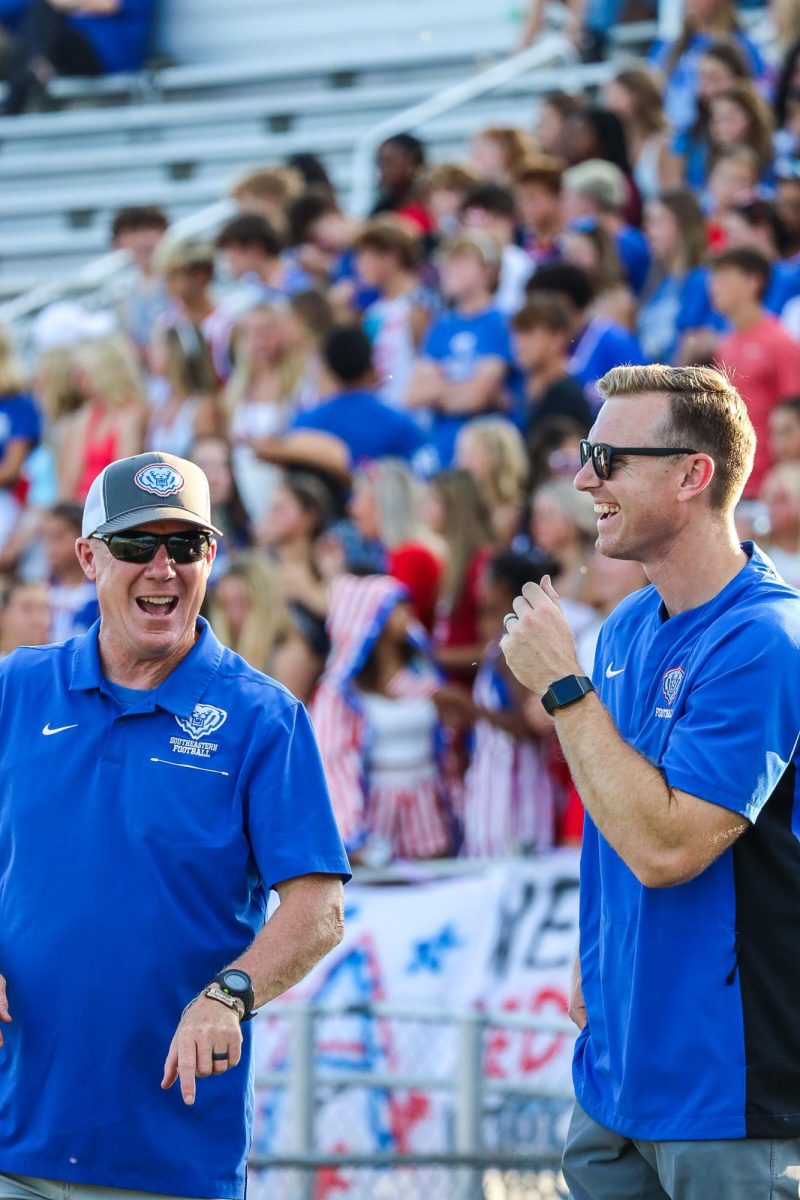The Issue and Decision-Making Process
Recently, controversy arose at Fishers High School concerning a student athlete’s eligibility and sexual harassment allegations. A member of the boys swim team was suspended for a large part of the season due to allegations of sexual harassment against female students, which were later proven true during a Title IX investigation. This, then, raised the question of whether or not to allow the male swimmer to compete in post-season meets since the girls season had concluded. Ultimately, Superintendent Dr. Allen Bourff and the HSE School Board made, and affirmed, the decision that allowed the swimmer to compete at Sectionals and eventually State. The statement from the Board released to Indy Star Feb. 22 includes:
Noting that because the girls swim season had concluded and that joint competition and practice were no longer taking place, the swim environment had been altered sufficiently to allow the male swimmer, no-contact provision enforced, to resume participation on the boys swim team for the remainder of the season.
After reviewing the investigation, the Board affirmed the initial findings and directives. Further, the Board affirmed the modification of the directives by the superintendent, acknowledging that the swim environment had significantly changed, enabling the school to permit the male swimmer to participate on the swim team with the no-contact provision intact. This affirmation assures persistence of a safe environment for all students as they continue their education within the school corporation
The statement provides the reasoning that the ending of the girls swim season was a factor in the decision to allow the male swimmer to compete, as female swimmers would not be in contact with the student during practice times. However, when making this decision, certain female members of the team were seemingly left out: the swim team managers.
The Role of a Manager on a Team
Managers are known parts of high school athletic teams; they attend every practice and competitive event, and perform various tasks for the team and coaching staff. Managers, like the athletes, also receive varsity letters for their contributions at the end of the season.
At the time of the incident, the Fishers swim program had three students who managed the boy and girls teams, all three were female. Ultimately, the decision to allow the male swimmer to compete failed to include female managers. By disregarding the managers in the decision, the district released a flawed decision that potentially sent the message to the managers that their voices and experiences were not equally as important as those of the female swimmers.
The Forgotten Voice
FHS senior Chloe Thompson has been a manager of the FHS swim team for two years and was one of the multiple female students who reported harassment by the male swimmer to administration as part of the Title IX report filed. While the girls swim team season ended, Thompson’s season, as well as the other two female managers’, was not finished. As one of the three managers, Thompson was still expected to attend practices and all meets after the girls season concluded, including Sectionals when the athlete was reinstated.
“[The texts he sent me] are in the report, in the file they have,” Thompson said. “ My texts are specifically on file telling him not to talk to me [in the way he did].”
Thompson alleged as part of the report that she was personally affected by texts and actions of the swimmer on multiple occasions.
“As soon as I heard the reasoning [allowing the male swimmer to compete], I knew it fell through,” Thompson said. “I’m a manager. This [harassment] happened to me. I’m an example.”
When the news was announced allowing the male swimmer to compete, Thompson was faced with a decision to make. Knowing he would be in attendance at Sectionals, she had to ask herself if she was able to attend as well. Thompson chose not to attend Sectionals and State due to the presence of the male swimmer.
“I absolutely [did not want] to attend Sectionals or State,” Thompson said. “It sucked that I couldn’t be there because there were 18 other boys swimming and I couldn’t be there to support them. It breaks my heart.”
Overall Takeaway
Thompson felt as if her voice should have also been an important factor in this decision-making process. By not including the female managers in the reasoning, the district failed to acknowledge all voices in the problem and the school’s decision was flawed.
“[This event] shows that girls’ voices don’t matter [to the school district],” Thompson said. “They care more about successful athletes than the girls. It’s clear what morally should have been done.”
If nothing else, this incident and response from the district opened gaps in the system of reporting sexual assault and harassment at the high school level.
“Many sexual behaviors have become normalized within our society to a point where many students are not able to decipher actions that substantiate harassment,” HSE Chief Equity and Inclusion Officer Dr. Erica Buchanan-Rivera said. “Improvements would include more proactive approaches that educate youth on the significance of Title IX and how to report as well as recognize sexual harassment.”
Ultimately, the school district’s reasoning did not account for the presence of the swim team managers, an experience that could potentially serve as a lesson for future students and staff members with cooperation from voices at all levels of the process.
Now, with incidents at each high school, the culture of sexual harassment and assault has worked its way into the school district and warrants necessary attention. The decision-makers of future incidents like this one need to take a step back and ask the questions: Is this the way the school district should be represented? What are the necessary steps to take to ensure the safety of students?


























